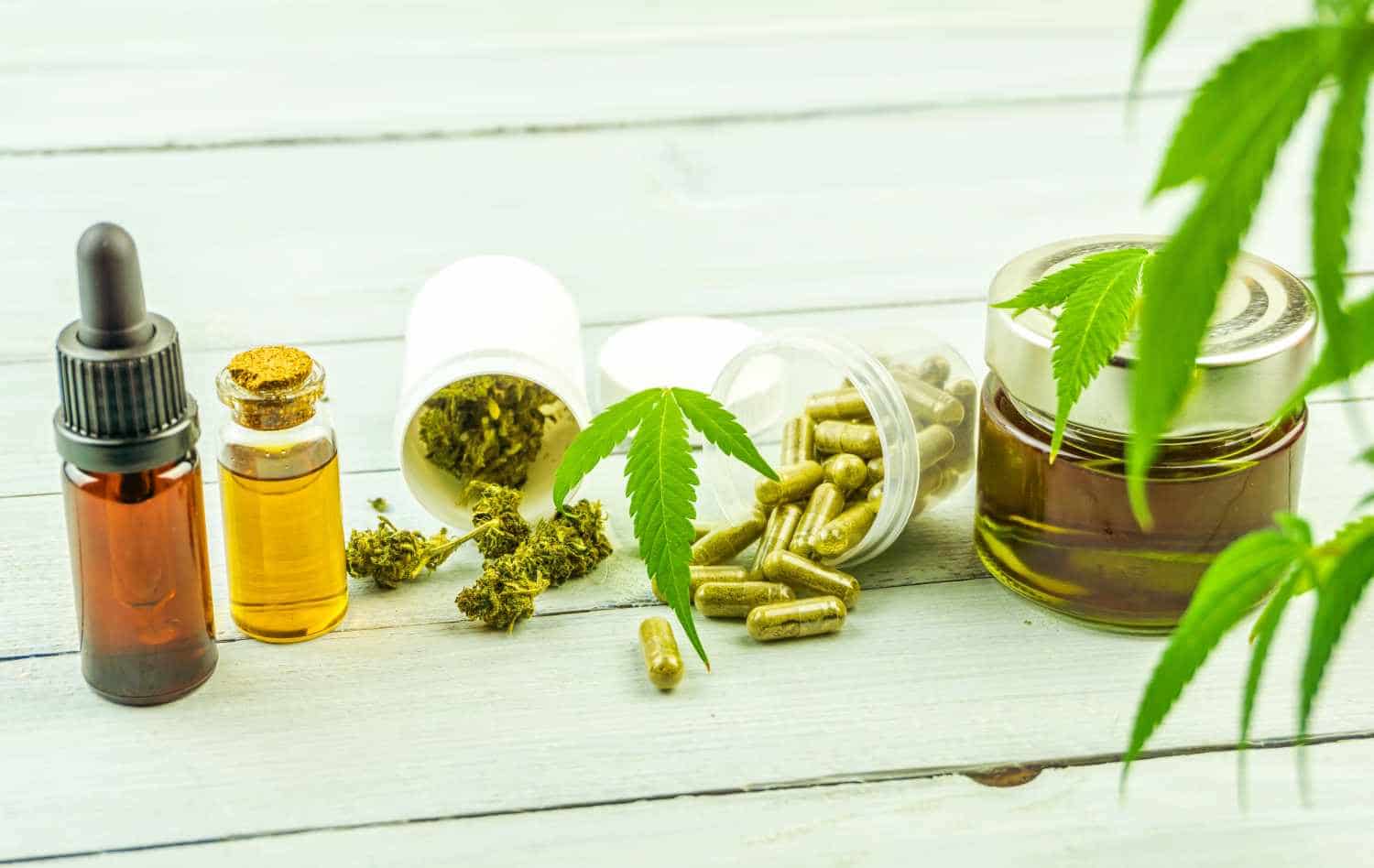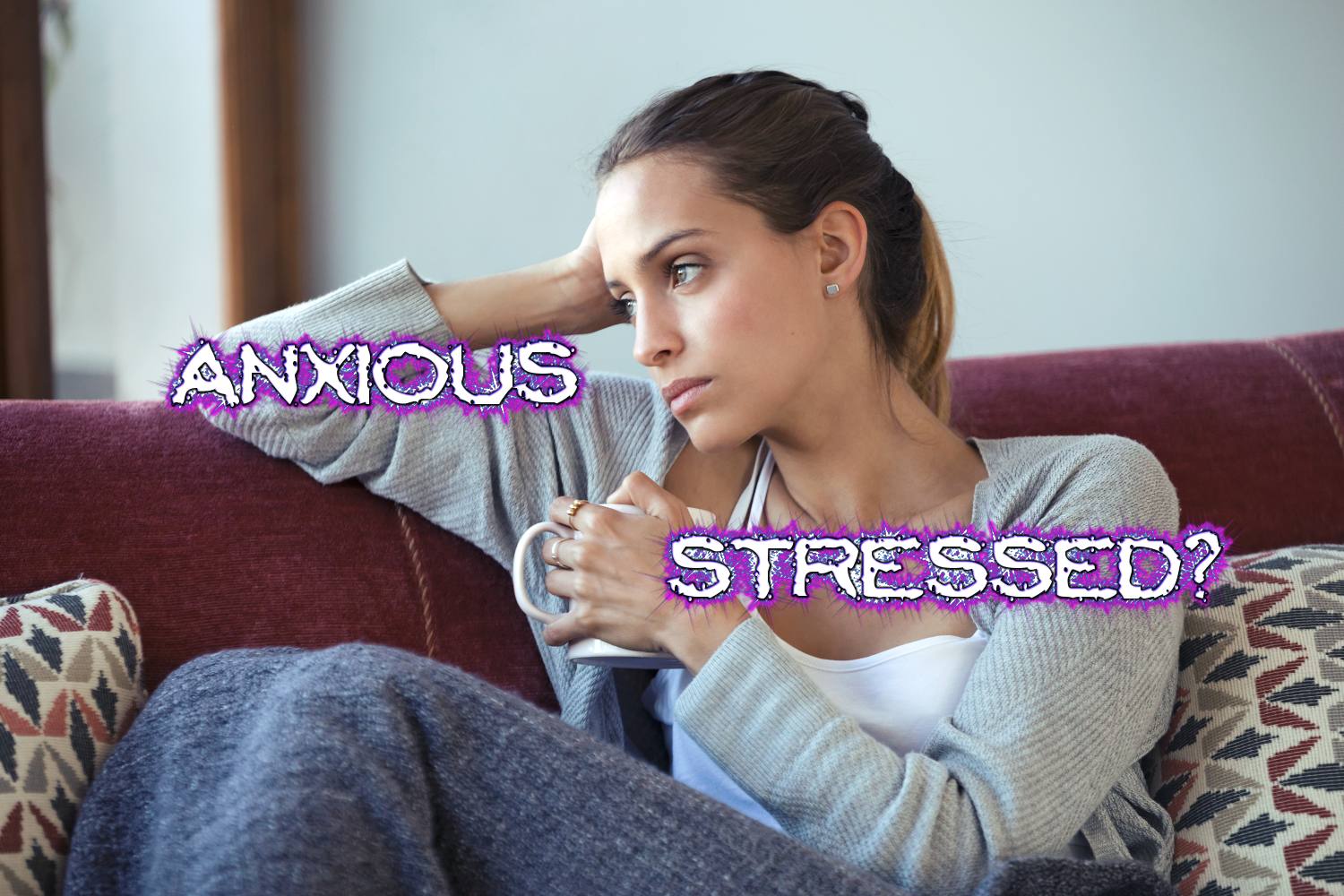Does CBD Help With Insomnia
A lack of ability to get a full night’s sleep and sleeplessness in general is referred to as insomnia. Insomnia is a sleep disorder where people have a hard time falling asleep or staying asleep as long as they would want or at least need to. This condition may last a short time (acute) or it may be something that lasts longer periods of time (chronic). It’s also something that can come and go and doesn’t necessarily have to be constant.
There are many treatments when it comes to insomnia, from pharmaceuticals, natural medicines and supplements to different types of practices and lifestyle changes that can help with this condition. There are two main types of insomnia, and it’s important to know which one you suffer from if you want to help yourself make the needed improvements to get a proper night’s sleep:
- Primary Insomnia: This means that your sleep issues are not linked to any other illness or disorder
- Secondary Insomnia: This means that your sleeping issues are linked or as a result of another health condition such as depression, heartburn, asthma, arthritis, etc.
Dealing with secondary insomnia may be a more lengthy and in-depth process requiring you to deal with the secondary issue contributing to your lack of sleep. If you think you’re suffering from secondary insomnia, you’ll have to deal with the primary issue causing or contributing to insomnia first, and CBD oil may help with those primary issues.
If you are suffering from primary insomnia, it’s good idea to look into CBD oil to give yourself an advantage in dealing with insomnia.
Does CBD Help With Insomnia
What is CBD oil?
Cannabidiol, or CBD oil is extracted from the cannabis plant. This is the same plant genus from which marijuana originates, but it doesn’t contain significant enough doses of THC (the psychoactive chemical in marijuana) to get anyone high. The plant that is grown to produce CBD oil is called the hemp plant.
Many people use the CBD oil extracted from the hemp plant to help themselves with a myriad of health issues. There is quite a bit of scientific evidence behind the use of CBD oil and it’s effectiveness in dealing with insomnia, as well as thousands of testimonials and anecdotal evidence. Although, it’s important to note that the study of CBD oil and its medical uses are quite new and still in its infancy, there is still a lot of work to be done to fully understand how it works.
How can CBD help with my insomnia?
It’s important to note that even studies which recommend CBD oil for improving sleep and helping eliminate insomnia, don’t necessarily understand how exactly CBD oil helps. However, it needs to be said that most of the researchers say that CBD improves sleep by tackling the underlying and root causes of insomnia. These generally are:
- Mental disorders such as anxiety, depression, PTSD
- Medication
- Physical ailments such as chronic pain
- Consumption/over-consumption of alcohol, caffeine and nicotine
- Other medical conditions
CBD oil is known to help with many issues possibly helping eliminate the above issues. There have been several studies completed looking at the connection between the use of CBD oil and better sleep, and here are some of the more interesting findings:
- One study involved 72 people, 47 experiencing anxiety and 25 poor sleep. All the participants in the study were given 25 mg of CBD oil in capsule form every day and in the first month almost 80% of the participants reported lower levels of anxiety and 67% reported experiencing better sleep.
- Another study looked into sleeping issues and insomnia caused by pain and how CBD oil can help. This study noted the connection between the use of CBD oil and quite a lot of evidence to support CBD helping alleviate acute and chronic pain. The authors of the study underline that by reducing the chronic pain experienced by someone, CBD can help improve sleep and eliminate insomnia
- Another study looked into the effectiveness of CBD oil in treating RBD (REM sleep behavioural disorder)
Does CBD Help With Insomnia
How to use CBD oil to help with your insomnia?
CBD is available in a few different forms, but most often as an oil. Here are the most popular ways of taking CBD oil:
- Edibles
- Under the tongue (sublingual) products
- Topical (creams and other ointments meant to be applied directly to the skin)
- Vaping
What to watch out for?
There are a very large amount of CBD products on the market with different amounts of CBD and of different quality. Since this industry is not yet well regulated that are some recommended precautions that should be taken when choosing the right CBD oil for you and your symptoms:
- Not all CBD oils are the same quality. CBD oil is not regulated in many countries, so it’s a good idea to base your purchasing decisions off of user testimonials and user reviews
- Full spectrum or isolate CBD? It’s a good idea to know the difference between these two main types of CBD oils. Full spectrum CBD oil includes many other compounds from the hemp plant, while CBD isolate is pure CBD
- Hempseed oil is not CBD oil. Vendors will quite often try to convince buyers that hempseed oil is an alternative for CBD oil. This is not true, hempseed oil contains a very small amount or no CBD oil at all
- CBD oil is sensitive to light and air. If you see CBD oil in a clear bottle, there is a good chance it has become weaker and lost potency due to light exposure. It’s a good idea not to risk buying CBD in clear bottles
- Know which product you want to buy before going to a CBD store or ordering online. Do your research before buying and using, and not risk buying the wrong product recommended by the sales person in the store
- There are shady dealers when it comes to CBD products, it’s a good idea to check that the retailer has an online history of transactions and many good reviews
Does CBD oil have any negative side effects?
Yes it does, although most people respond well to CBD. Some people can experience mild side effects:
- Fatigue
- Changes in body weight
- Appetite changes
- Diarrhea
There also are concerns regarding liver health and CBD oil. A study has found that CBD may interfere with an enzyme called P450 complex. This enzyme is there to support the liver’s mechanism to break down different toxins. Due to this, there is a risk that CBD may increase the liver’s toxicity.
It’s a good idea to talk to your doctor before taking CBD as well. There is a chance that CBD may interfere or interact with other medications you may be taking.
Conclusion
Although exploring the use of CBD oil as an option in helping deal with your insomnia is a good idea, it’s an even better idea to combine that with some lifestyle changes that may help deal with your insomnia even quicker. Eating healthier, practicing meditation and reducing or all together eliminating harmful substances such as alcohol, nicotine and over-consumption of caffeiene will most likely help your make your battle with insomnia not only shorter, but more effective.
The importance of getting the proper amount of aerobic exercise cannot be understated. Exercise is known as the best medicine and prophylactic for just about every illness, the most effective mood improver and hormone regulator.
CBD oil is well known for helping with many ailments, and pain is one of the things that CBD oil is best known for. It’s estimated that around 50 million Americans suffer from chronic pain, or about 20% of the population. Out of this group it’s estimated that around a third suffers from chronic pain that interferes with their day-to-day life, or 8% of the American population in total.
It’s important to note that living with chronic pain is very dangerous. It’s estimated that between 20-30% of the people who are prescribed opioid pain medication end up misusing it, and about 10% become addicted2. Addiction to opioids can lead to a person seeking stronger drugs, and many people who start off on prescription opioid pain medication end up switching to harder drugs, even heroin.
Taking the dangers of addiction and prescription medication into account, it’s a good idea to look for healthier and more natural alternatives.
Does CBD help with pain?
CBD oil or cannabidiol is extracted from the cannabis plant. This is the same plant genus from which marijuana originates, but it doesn’t contain significant enough doses of THC (the psychoactive chemical in marijuana) to get anyone high. The plant that is grown to produce CBD oil is called the hemp plant.
The CBD oil extracted from the hemp plant is used to relieve many types of pain. There has been quite a bit of research done, and there is quite a bit of scientific evidence that stands behind the use of CBD oil and how effective it is when it comes to relieving pain.
Beyond the science there is also thousands of testimonials from people that it has helped and a lot of anecdotal evidence. Although it’s important to note that there is still a lot of research that needs to be done when it comes to understanding how CBD oil works with the body and the brain to relieve pain.
How CBD oil works to relieve pain?
Cannabinoids like CBD connect themselves with receptors in your brain and immune system, One of these receptors is called a CB2 receptor, this connection triggers the immune system to help manage pain and inflammation. It’s believed that when CBD is consumed it attaches itself to CB2 receptors, and it’s also thought to produce natural cannabinoids that also attach themselves to CB2 receptors.
Regardless of how it works, it’s strongly believed that CBD has an impact on these receptors and the way they respond to signals helping relieve inflammation and pain.
How to use CBD oil to manage pain and chronic pain?
CBD can be found in a different forms, here are the the it’s most often used:
- Edibles
- Under the tongue (sublingual) products
- Topical (creams and other ointments meant to be applied directly to the skin)
- Vaping
Although it is important to note that the effects of long term vaping aren’t known, and there is quite a bit of evidence that it may potentially be hazardous for your health. There have been quite a few reports about substandard and toxic oils and ingredients being used, and there have even been deaths as a result of vaping.
There also are concerns regarding liver health and CBD oil. A study has found that CBD may interfere with an enzyme called P450 complex. This enzyme is there to support the liver’s mechanism to break down different toxins. Due to this, there is a risk that CBD may increase the toxicity levels in the liver.
You should talk to your doctor before you begin taking CBD oil for pain relief. CBD oil may interact or interfere with other medications that you might be taking.
What to watch out for?
There are a very large amount of CBD products on the market with different amounts of CBD and of different quality. Since this industry is not yet well regulated that are some recommended precautions that should be taken when choosing the right CBD oil for you and your symptoms:
- Not all CBD oils are of the same quality. CBD oil is not regulated in many countries, so it’s a good idea to base your purchasing decisions off of user testimonials and user reviews
- Full spectrum or isolate CBD? It’s a good idea to know the difference between these two main types of CBD oils. Full spectrum CBD oil includes many other compounds from the hemp plant, while CBD isolate is pure CBD
- Hempseed oil is not CBD oil. Vendors will quite often try to convince buyers that hempseed oil is an alternative for CBD oil. This is not true, hempseed oil contains a very small amount or no CBD oil at all
- CBD oil is sensitive to light and air. If you see CBD oil in a clear bottle, there is a good chance it has become weaker and lost potency due to light exposure. It’s a good idea not to risk buying CBD in clear bottles
- Know which product you want to buy before going to a CBD store or ordering online. Do your research before buying and using, and not risk buying the wrong product recommended by the sales person in the store
- There are shady dealers when it comes to CBD products, it’s a good idea to check that the retailer has an online history of transactions and many good reviews
Conclusion
CBD oil is a promising natural remedy for many ailments, including chronic pain. It has an effect on the receptors in your brain and immune system that seems to make it very effective in reducing inflammation and pain.
More studies are needed to confirm the way it works with complete certainty, but if you suffer from any sort of regular pain it’s a great idea and alternative to pharmaceuticals. CBD oil is a natural product and its side effects are mild in the worst cases.
It’s worth a try, and if it does work for you it’s most likely a healthier alternative than taking harsh, and potentially dangerous and addictive prescription medication.
Related Home Remedy Searches:
26 home remedies for insomnia, best cbd oil, cbd dosage for cancer, cbd hemp oil benefits, cbd hemp oil side effects, cbd oil dosage, cbd oil effects, cbd oil for cancer, cbd oil for pain, cbd oil for seizures, cbd oil reviews, cbd vape juice, cbd vape juice effects, cbd vape oil for sale, cbd vapor oil, cure insomnia forever, does cbd oil work, hemp vape oil, high cbd oil,
home remedies for deep sleep, home remedies to fall asleep quickly, how i cured my insomnia, how to cure insomnia in 12 minutes, how to cure insomnia quickly, how to help someone with insomnia, how to make cbd oil, how to sleep fast, how to treat insomnia due to anxiety, how to treat insomnia naturally without medication, indian home remedies for sleep,
insomnia home remedies honey, natural ways to induce sleep, remedies to sleep well at night, side effects of cbd, treatment for insomnia in adults, vape cannabidiol cbd, what is the most effective natural sleep aid?, Does CBD Help With Insomnia, Natural Insomnia Treatment, cbd oil, Does CBD Help With Insomnia, insomnia remedy,
Insomnia References and Insomnia Information
- Web MD: https://www.webmd.com/sleep-disorders/insomnia-symptoms-and-causesb
- Web MD: https://www.webmd.com/sleep-disorders/insomnia-symptoms-and-causes
- Healthline: https://www.healthline.com/health/cbd-for-insomnia#how-it-works
- Mayo Clinic: https://www.mayoclinic.org/diseases-conditions/insomnia/symptoms-causes/syc-20355167
- National Library of Medicine (Scientific Study): https://www.ncbi.nlm.nih.gov/pmc/articles/PMC6326553/
- National Library of Medicine (ScientificStudy): https://www.ncbi.nlm.nih.gov/pmc/articles/PMC6277878/
- National Library of Medicine (Scientific Study): https://pubmed.ncbi.nlm.nih.gov/24845114/
- Healthline: https://www.healthline.com/health/how-to-take-cbd
- Panacea Life Sciences: https://panacealife.com/nine-top-things-to-watch-out-for-cbd-safe/
- Fierce Health Care: https://www.fiercehealthcare.com/hospitals-health-systems/centers-for-disease-control-and-prevention-chronic-pain-opioids#:~:text=The%20CDC%20reviewed%20the%202016,interferes%20with%20their%20daily%20lives.
- Addiction Center: https://www.addictioncenter.com/addiction/addiction-statistics/#:~:text=About%2020%25%20to%2030%25%20of,have%20an%20opioid%20use%20disorder.
- Panacea Life Sciences: https://panacealife.com/nine-top-things-to-watch-out-for-cbd-safe/
- Medical News Today: https://www.medicalnewstoday.com/articles/319796#cbd-oil-and-chronic-pain
- Healthline: https://www.healthline.com/health/how-to-take-cbd
- Liebert Pub (Scientific Study): https://www.liebertpub.com/doi/10.1089/can.2016.0034
- Wikipedia: https://en.wikipedia.org/wiki/2019%E2%80%932020_vaping_lung_illness_outbreak#:~:text=A%20total%20of%2060%20deaths,linked%20to%20a%20vaping%20product.
- Read Also: https://homeremediesapp.com/does-cbd-help-with-pain-and-chronic-pain/












